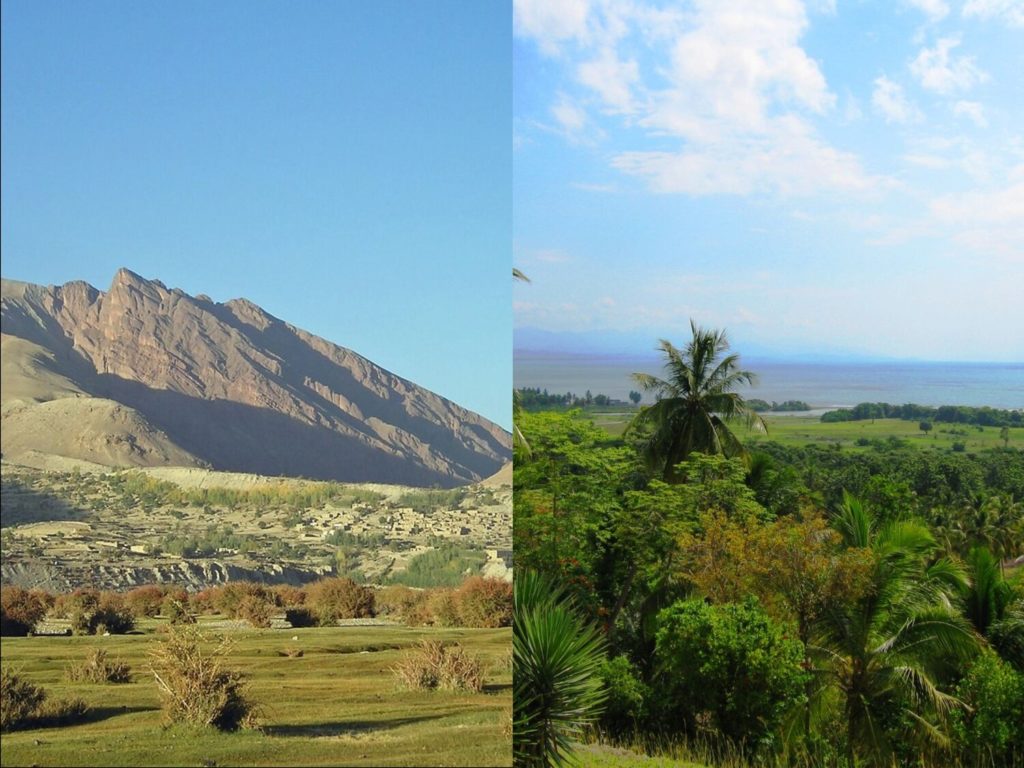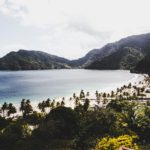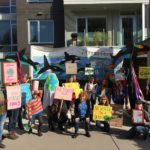The Healthy and Environment-friendly Youth (HEY) Campaign has launched a series of joint interviews with young people from across the world on climate change and health. This is an interview with Idrees from Afghanistan and Kev from Haiti.
Ahmad “Idrees” Shekaib is a 21-year-old HEY Campaign Ambassador, medical student at the American University of Barbados, an enthusiast of different cultures, plays volleyball and the guitar, and is a hardcore gamer.
Kev Daliza Bien-Aime is a 20-year-old HEY Campaign Ambassador, Vice-coordinator of the Haitian Heritage & Tourism Institute, and an activist for early childhood education, women’s rights and climate change.
YOU IN ONE WORD?
Idrees: Scientific!
Kev: Purposeful!
DESCRIBE NATURE IN YOUR COUNTRY: THE PLACES AND SPECIES YOU CHERISH, VALUE AND WANT TO PROTECT.
Idrees: Kabul, the city where I come from, is a mountainous area well over 2300 meters above sea level. It has a cool and dry climate and it is mostly surrounded by mountains imitating a natural wall that protects the city. Although Afghanistan is portrayed as a country of sand and deserts, on the contrary Kabul and most of the northern provinces are green with a cool and romantic climate. Kabul city is famous for its various gardens and luxurious palaces and castles from the medieval and Victorian eras. Kabul is a city where you can enjoy all the four seasons fully. Starting with the spring season, one can expect a fresh and cool breeze every morning with flowers blooming and rain constantly pouring with people starting to visit the countryside and special festivities. Summer is still not a warm time and it is the harvest season, especially for fruits, so most people spend summers tending gardens and visiting their farmhouses to enjoy seasonal fruits and produce. Autumn is a romantic season with the rustic colors of the city and people start preparing for the winter as a tradition by setting up wood fire heaters, drying meat (which is a delicacy) and starting festivities. Winter is the most beautiful season because everything is covered with snow, giving the city a white tone and a calm atmosphere.
Afghanistan hosts many mountainous and high-altitude animals and birds such as Bald Eagles, Mountain Tigers and Leopards, White Snow Leopard, Mountain Goats and a variety of other species, which can be deemed as rare and some may even be on the verge of extinction. Places such as the gardens, castles, monuments and the beautiful countryside and all the rare species that define the culture and tradition of Afghanistan are the most valuable assets and should be preserved to enrich the culture and maintain a healthy environment for a spectrum of species including humans.
Kev: Haiti is situated between the Caribbean Sea and the North Atlantic Ocean. Its name comes from an Indigenous Indian (Arawak) appellation: “Ayiti”, which means “Land of mountains”. The country is indeed mountainous, but the coastline is flat and rich in coconut trees with a lot of sea life. The coastline also has limestone caves, grottoes, subterranean rivers, and natural harbours.
I come from Port-au-Prince, the capital city. It was the scene of several key events of the Haitian Revolution. Specifically, I’ve been living in Petion-Ville, a suburb of Port-au-Prince, since my early childhood. This hillside town looks like a residential quarter, foggy in the heights, with a lot of trees. Unfortunately, it’s becoming more and more surrounded by urban sprawl, due to economic challenges.
The places I cherish and value? The North Citadel: Citadelle Laferrière. The Bassin Bleu Waterfall, Port Morgan beach, The National Park: La Visite. And the Cayes Botanical Garden. The species I want to protect? The Grey-crowned Palm Tanager. The Hispaniolan Ventriloquial frog. The Candy Cane Snail. The Hispaniolan trogon. The Hispaniolan Solenodon. And the Hispaniolan Hutia.
UNFORTUNATELY, OUR ENVIRONMENT IS CHALLENGED BY HUMAN ACTIVITIES AND INAPPROPRIATE BEHAVIORS. TELL US WHAT FRUSTRATES YOU THE MOST WHERE YOU LIVE, CAN YOU THINK OF ANY SOLUTION TO SOLVE THESE PROBLEMS?
Idrees: As a medical student, there are lots of unethical behaviors in my country that irritate me and hurt me as it leads to direct and indirect damage to the environment, which can ultimately cause serious health problems and climate change. Lives matter, and these abnormal behaviors threaten life! Medicine is a noble profession to help save lives, so ignoring these environmental changes is certainly like leaving a bullet in a wound in ignorance. As Afghanistan is a developing country, most people are not able to access some sort of efficient and clean source of heat in the winter, so they tend to find whatever they can to burn to keep themselves and their families warm. This can lead to excessive smoke and chemical fume production which sometimes creates a false black sky over the city. This can lead to serious health issues such as Chronic Bronchitis, Lung Carcinomas and very invasive Mesotheliomas. To cure this problem people should be provided with education and resources to provide a clean source of heat in the winter. If not, people are left with the long term risk of invasive Mesothelioma or the risk of dying from frost bite and severe pneumonia.
Apart from this, people tend to throw away organic waste in unethical ways, which can lead to increased microbial colonization and infectious diseases. To tackle this problem, there are various solutions. I was personally involved in a research project where we designed a procedure to collect organic waste and produce ethanol fuel from it. I also designed another study where we could use banana and mango peels, which is usually discarded, to filter heavy metals from polluted rivers along industry lines. They were successful but far from implementation stage. Such projects and innovative solutions are needed.
Kev: My biggest frustration concerns the lack of waste management. Plastics are combined to metal and organic wastes, without any recycling or waste sorting. I am also concerned about deforestation for wood-charcoal production.
I believe that the following solutions are needed:
-
Educate the population about recycling and waste management, and the impact of climate change (soils, oceans and river pollution).
-
Have more garbage collection equipment and services.
-
Clean the landfills household wastes, use the organic waste for agriculture and gas production for alternative energy resources, recycle the plastics and metal that can be.
-
Systematic reforestation
WE ARE IN 2030, POLITICAL AND ECONOMIC LEADERS HAVE TAKEN ACTION ON CLIMATE. SHARE YOUR WISH LIST OF WHAT HAS CHANGED (IN YOUR COUNTRY OR THE WORLD).
Idrees: I have many ideas:
-
People are educated and strict laws are in place for citizens to keep the city clean and health-friendly, such as not throwing waste everywhere, categorized waste collection and sanitation practices in small businesses.
-
Use of antibiotics and antivirals are reduced and controlled to reduce pathogen resistance and infectious diseases.
-
GMO products and use of hormones are banned to reduce health problems and carbon footprint.
-
Clean sources of energy and heat are provided for all classes of citizens to reduce unnecessary chemical fume production.
-
There is a central sewage collection system with recycling.
-
Organic waste is collected and utilized rather than accumulating in the environment.
-
Gardens and national parks are protected to preserve species and a clean environment
-
Number of vehicles per capita is reduced to less than 1.
-
Industrial waste is utilized rather than disposed in the nature
-
Medical sciences are more oriented to prevention than a treatment approach
-
Environmental pollution is heavily taxed to prevent profit margins from these types of businesses
-
Clean sources of energy are exempted from taxes to promote a healthy environment.
If all of the above are implemented, it can lead to reduced carbon footprint and overall reduced temperatures, which can slow down further global warming.
Kev: For Haiti, I want the following:
-
No use of charcoal / no wood burning
-
Our forest cover has augmented by 30%
-
Plastic bags and cans are almost gone
-
Once a month at least, all around our coasts is swept to keep the ocean clean.
Across the world, I wish that:
-
Populations are more aware about climate change.
-
More people are able to take action (on personal and community level) to reduce their carbon footprint
-
More people have an eco-friendly life and mind-set.
-
More companies use alternative energy sources and are more respectful of the environment.
